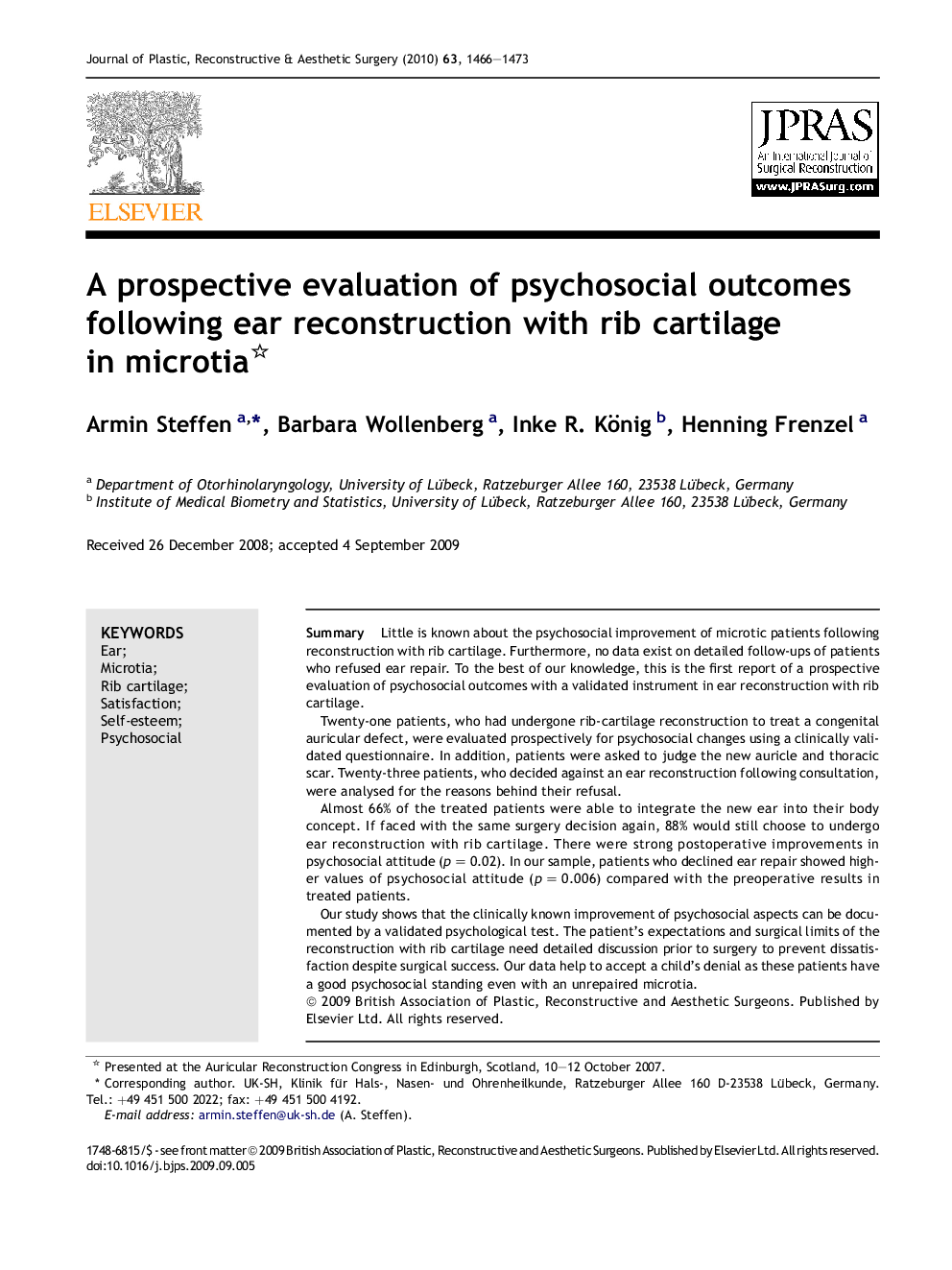| Article ID | Journal | Published Year | Pages | File Type |
|---|---|---|---|---|
| 4119574 | Journal of Plastic, Reconstructive & Aesthetic Surgery | 2010 | 8 Pages |
SummaryLittle is known about the psychosocial improvement of microtic patients following reconstruction with rib cartilage. Furthermore, no data exist on detailed follow-ups of patients who refused ear repair. To the best of our knowledge, this is the first report of a prospective evaluation of psychosocial outcomes with a validated instrument in ear reconstruction with rib cartilage.Twenty-one patients, who had undergone rib-cartilage reconstruction to treat a congenital auricular defect, were evaluated prospectively for psychosocial changes using a clinically validated questionnaire. In addition, patients were asked to judge the new auricle and thoracic scar. Twenty-three patients, who decided against an ear reconstruction following consultation, were analysed for the reasons behind their refusal.Almost 66% of the treated patients were able to integrate the new ear into their body concept. If faced with the same surgery decision again, 88% would still choose to undergo ear reconstruction with rib cartilage. There were strong postoperative improvements in psychosocial attitude (p = 0.02). In our sample, patients who declined ear repair showed higher values of psychosocial attitude (p = 0.006) compared with the preoperative results in treated patients.Our study shows that the clinically known improvement of psychosocial aspects can be documented by a validated psychological test. The patient's expectations and surgical limits of the reconstruction with rib cartilage need detailed discussion prior to surgery to prevent dissatisfaction despite surgical success. Our data help to accept a child's denial as these patients have a good psychosocial standing even with an unrepaired microtia.
